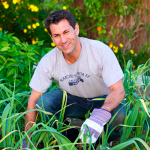Raising Assertive Children
 Assertiveness is the capacity to comfortably communicate one’s feelings and intentions in a positive and confident manner. Once a child has established the capacity to rely on themselves age appropriately and demonstrate consideration for another, assertion has to do with how a child then communicates themselves to others.
Assertiveness is the capacity to comfortably communicate one’s feelings and intentions in a positive and confident manner. Once a child has established the capacity to rely on themselves age appropriately and demonstrate consideration for another, assertion has to do with how a child then communicates themselves to others.
Assertiveness is based on healthy self-esteem and an internal conviction that the child has a purpose. Such mental strengths supply the child with comfort in letting others know how they feel and what they want. Absent are frequent temper tantrums or passivity. Instead is a firm and clear expression of needs and desires.
Assertive children tend to do well in school, have many friends, and infrequently get bullied. They tend to be leaders, intelligent, and likable. Being assertive is not being selfish. Rather, it is an expression of self-love and a representation of being their own person. When assertiveness is practiced, compromise is possible. Take two children who want to both play different games. Each of them conveys their desire to the other in direct and clear ways. The outcome is the decision to take turns and play both games. Respect is then achieved for each of the players.
Parents help children learn assertiveness in two basic ways. First, the parent models being assertive with their own children by holding their child accountable for themselves and second, by validating and respecting the child’s attempts to be assertive. When 5 year-old Billy told his mom that he could tuck himself in bed at night, despite her longing for that continued ritual, she let him put himself to bed and Billy felt like a really “big” boy.
Practicing assertiveness with peers is an invaluable part of character development and assertive children are the least susceptible to peer pressure. They are comfortable saying “no”. Children who lack adequate assertiveness tend to be either too aggressive or too passive. In extreme cases, this can lead to embedded personality traits. For example, children who have impulse disorders, such as Oppositional Defiant Disorder, have assertiveness failures. The either “act out” or control others as a means of getting their needs met. On the other end of the spectrum, are the “passive-dependent” children. Afraid of their own feelings and behaviors, they “give in” to others and allow themselves to be manipulated. This is the most common type of child who gets bullied.
Teaching children how to speak up for themselves is one of the most important virtues a parent can do. Work with your child on assertiveness skills. It’s well worth the effort.
Practicing Assertiveness: The Bully Game:
Take turns with you child playing a bully and a victim. Even better, team up with another family member and have two bullies and one victim. Write out 5 different bully situations such as: ” a bully comes up to you and demands you give them your lunch”. The first part of the game is feeling identification. Have each person, including the bullies, identify how they are feeling. (Tip: Bullies feel vulnerable!). Next, collectively come up with three solutions demonstrating an assertive response to the bully. One such resolution could be “I’m sorry but that isn’t going to work for me” and walk away. Remember, assertiveness is clear, firm, and based on strength. Practicing what I call “Bully Busting” empowers children to face their fears and resolve their plight using their parents and siblings as partners in the practice. The number of examples of practicing assertive behavior is limitless. Responding to bullies is just one of many. Design your own game based on the particular struggles your child faces in his or her own environment.
Once a child becomes comfortable with Assertiveness, he or she will then become a model to their peers about how to get one’s needs met in healthy and practical ways. For example, when peers give each other advise about how to handle something, often times that advise is used more readily than what they hear from their parents. After all, they are both the same age and also the same size and everyone knows both really matter.
______________________________________________________________
Dr. Keith Kanner is a Licensed and Board Certified Clinical Child, Adolescent, and Adult Psychologist and Psychoanalyst. In addition to a full-time private practice in Rancho Santa Fe, California, he is an Assistant Clinical Professor of Psychiatry in the School of Medicine at the University of California San Diego where he teaches both human development and also trains medical students how to better understand and relate to their patients. He also serves as the Director of Clinical Counseling for La Jolla Country Day School in La Jolla, California, and is a Clinical Professor at The San Diego Psychoanalytic Society and Institute. Dr. Kanner also sits on the National Board of Directors for Kids Korps USA, which is the largest organization in the country that teaches children and adolescents the importance of volunteering to help the community at large. As a father of three children, he is also a dedicated baseball, football, and soccer coach.










You must be logged in to post a comment Login